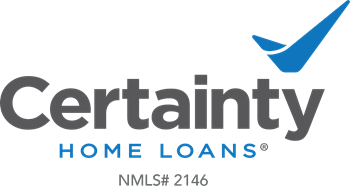Cash-Out Refinance
A cash-out refinance takes advantage of the equity you’ve built in your home and gives you money back by refinancing into a larger mortgage. In other words, you are able to borrow more than you owe on your current mortgage and pocket the difference.What you need to know about cash-out refinances
A cash-out refinance can help you feel financially empowered by allowing you to use the equity from your home to get cash back. You can use the money received to do whatever you'd like, including paying medical bills, consolidating or paying off debt, or even going on your dream vacation.Cash-out refinances are ideal when the overall value of your home has increased. However, cash-out refinancing can also be done if you have paid a good amount of your current mortgage down and have built a significant amount of equity. A cash-out refinancing increases the principal owed on your mortgage.
If you do not need cash back and want to refinance to reduce your monthly mortgage rates, a rate-and-term refinance may be the answer.
Use the equity in your home to get cash back.
May give you a lower rate if you obtained your loan when rates were higher.
Take cash out to pay off things like high-interest credit card debts to save in interest.
Have refinance questions? We can help.
The first step in securing a loan is to complete an initial loan application. The initial application interview is the key to the loan process going smoothly and closing on time. After you have signed and returned the Intent to Proceed disclosure, your loan officer will obtain all pertinent documentation from you, so as to avoid unnecessary problems and delays. Additional documentation is often required as your lender moves forward in the process. The extent of additional documentation will be determined largely by your past history and credit record. During the application process, the lender will order a credit report from a credit reporting agency and a professional appraisal of the property you want to purchase.
If interest rates drop significantly, you may want to investigate refinancing. Most experts agree that if you plan to be in your house for at least 18 months and you can get a rate less than your current one, refinancing is smart if you do not pay more in fees than you will save in the time you will live in the house.
The qualification requirements for a refinance can vary depending on what mortgage you have. Generally, your name must be on the title of the home for a minimum length of time and your credit score must fall within the required guidelines.
If you have questions about whether you can benefit from a refinance, speaking with a local Loan Officer is a great place to start.
If you have questions about whether you can benefit from a refinance, speaking with a local Loan Officer is a great place to start.
Homeowners rarely need to make a down payment when they refinance their home loan. However, there are still closing costs involved in refinancing that may require you to bring some cash to the closing table. Connecting with a local Loan Officer to discuss your specific situation and goals is a great place to start.
As a homeowner, you may qualify for several benefits that can yield substantial savings when you refinance your home. Refinancing may allow you to tap into some of your home's value, helping you to make the most of your finances.
- Update the duration of your mortgage
- Lower your monthly mortgage payments
- Switch from an adjustable-rate mortgage to a fixed-rate mortgage
- Combine your first and second mortgage into one loan with one payment
- Eliminate private mortgage insurance
- Obtain investment property capital
- Fund a retirement account
- Establish a college fund for your children
- Remodel or renovate your home

